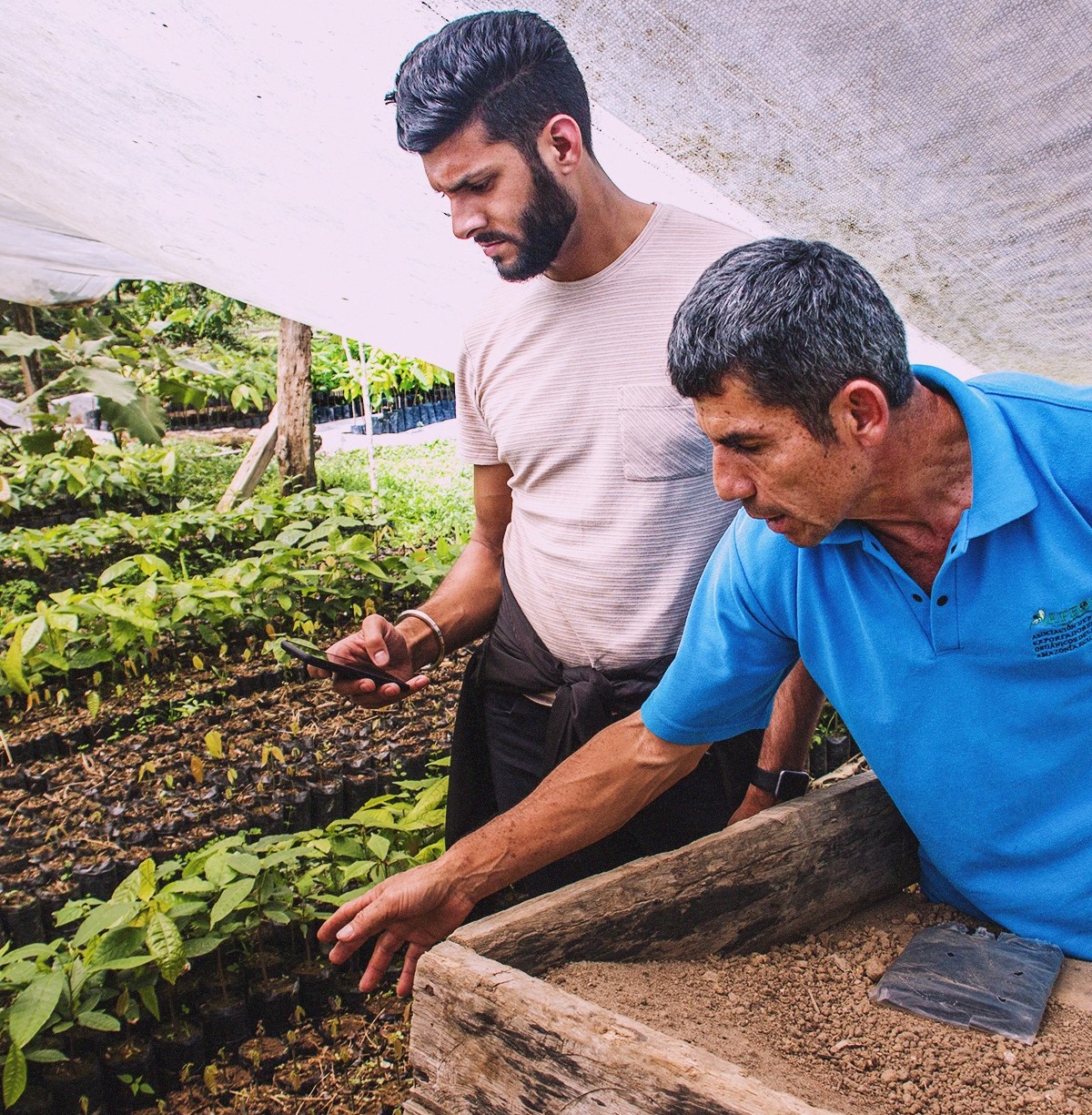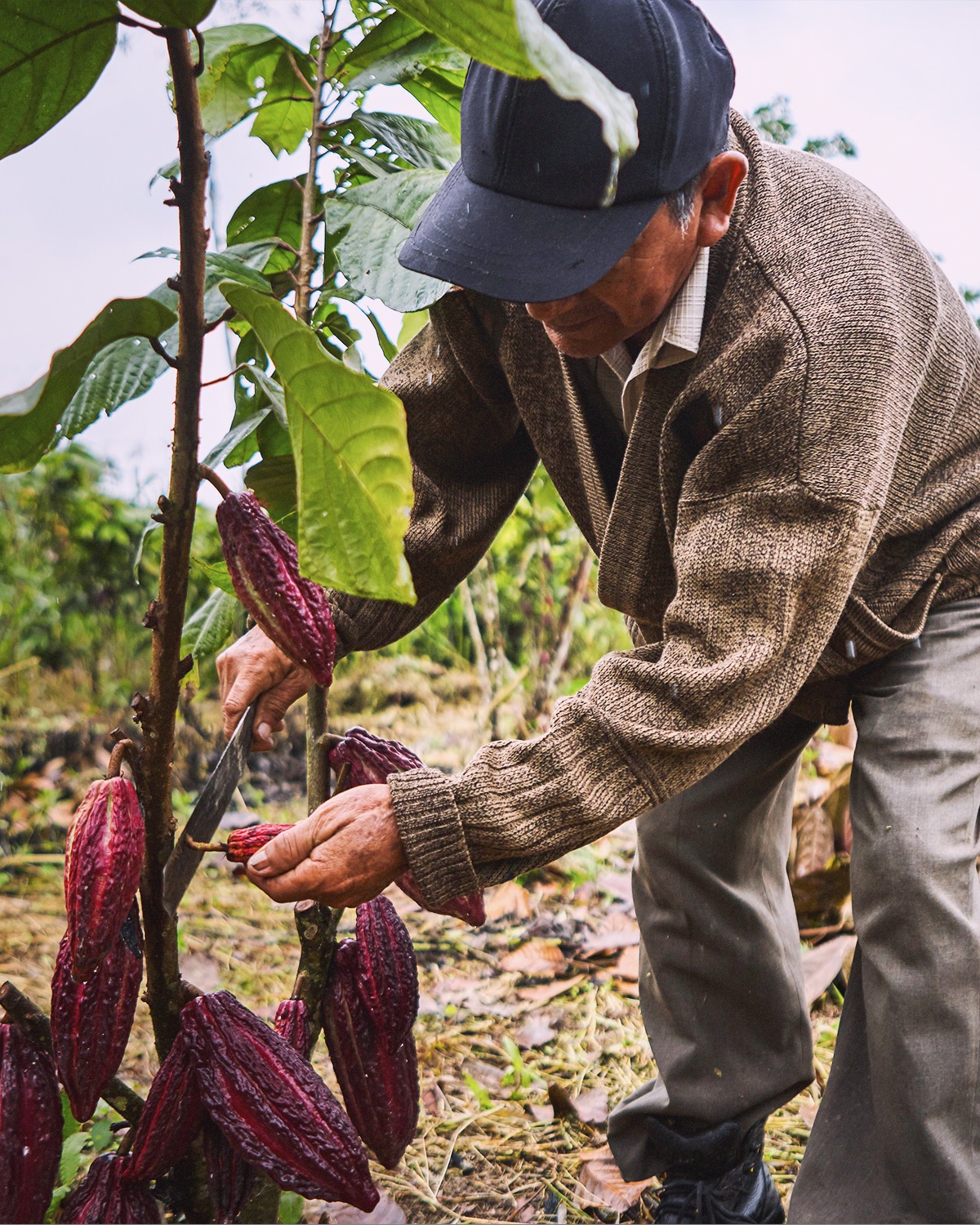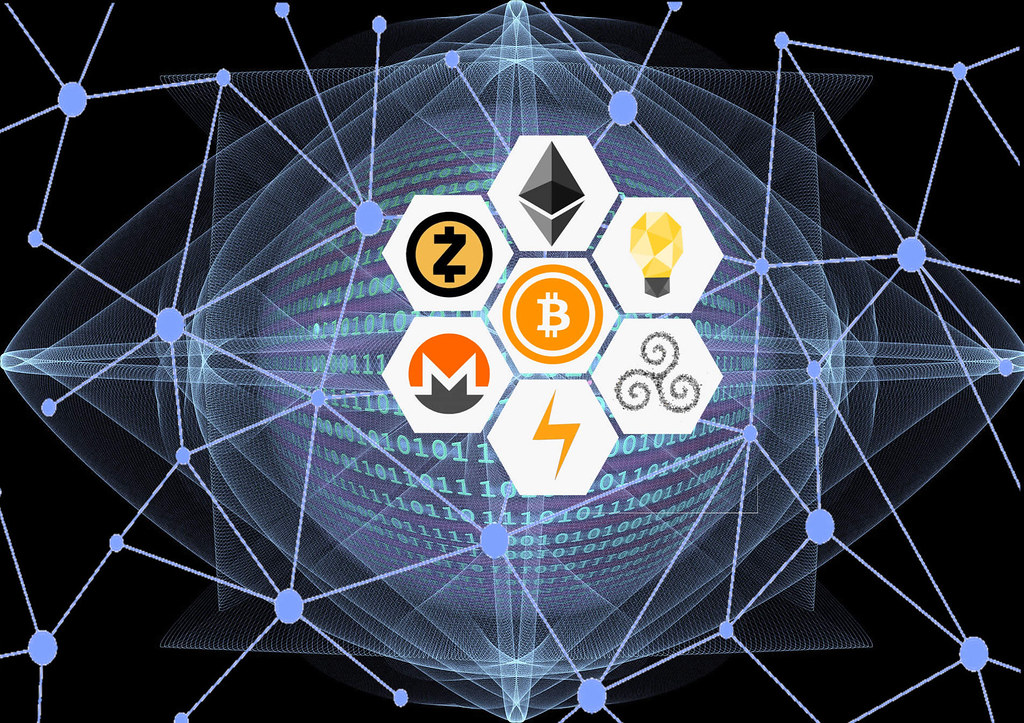Blockchain-powered token empowering poverty-stricken cocoa farmers
An average cocoa farmer earns as little as USD 1 per day which is significantly below the United Nation's poverty line of USD 1.90 per day but that can change with the blockchain-powered token.

The rich flavor and velvety aroma of roasted cocoa beans can make anyone fall for chocolates. But do you know, your cravings for this sweet stuff can drag cocoa farmers into poverty, modern slavery, if not produced sustainably?
Chocolate is a billion-dollar global industry that creates employment and is the only source of livelihood in some of the poorest parts of the world, particularly in West Africa and Latin America. According to ResearchAndMarkets.com's "Chocolate Market - Growth, Trends, and Forecast (2019 - 2024)" report the global chocolate market is forecasted to reach USD 139.94 billion by 2024 growing at a CAGR of 4.5% during the forecast period (2019 - 2024).
With the growing demand and market competition, the cocoa prices fall and so does the living wages of cocoa farmers. Farmers earn just 3 percent of the value of the cocoa used in making a chocolate bar. A large chunk of the profit goes into the pockets of intermediaries, making it difficult for the poor farmers and workers to earn living incomes.
An average cocoa farmer earns as little as USD 1 per day which is significantly below the United Nation's poverty line of USD 1.90 per day, says a report by Fairtrade International and The Living Income Community of Practice. Farmers and workers also grapple with hazardous working conditions, loans, long working hours, limited access to modern farming tools and pricing information which in turn limits opportunities to get higher prices for their produce and invest in their farms, and social well-being. This poverty trap subsequently drags cocoa farmers into child labor and modern slavery.
Chocolate for radical equality
Ever wondered a bite of the chocolate bar could help end poverty and create a radical change in the world? Envisioning the same for cocoa farmers, the United Nations Development Programme (UNDP) and the FairChain Foundation have designed new chocolate, dubbed The Other Bar, that seeks to change the way businesses work and bring real impact through the simple act of buying a chocolate bar. Simply by eating the chocolate, one can directly invest in farmers and help to create jobs and plant trees.

Image Credit: Facebook/The Othe Bar
Launched in October, The Other Bar is manufactured at an independently-owned factory in Ecuador, a country straddling the equator on Latin America’s west coast and with no middlemen, the cocoa farmers are paid better and faster. Not only higher wages, but the initiative is also contributing to afforestation, employment, training, skills, and opportunities for the farmers and their communities.
Blockchain for empowerment
Inside every pack of The Other Bar, consumers also get a blockchain-powered token worth 25 pence that can either be redeemed to help farmers plant a new cocoa-producing tree or could be used to get 25 pence off on the next purchase.
With a contribution of four tokens, a farmer can buy one tree that can produce cocoa worth £19. Other than producing cocoa for the farmers, these trees will also help fight climate change by absorbing and storing carbon dioxide. Furthermore, after scanning the code, consumers can see exactly where their chocolate came from, who grew it, when it was roasted and how it was made via a blockchain-powered solution.

Image Credit: Facebook/The Othe Bar
Well, this is not the first time when blockchain has been used for social good. In the recent past, many humanitarian organizations and businesses seeking to promote fair trade and better living conditions for cocoa farmers have utilized this distributed ledger technology for a fully digitalized supply chain and better traceability of cocoa.
Tony’s Chocolonely, a Dutch confectionery company aiming to make the chocolate industry 100 percent slave-free also pilot-tested blockchain solution. The company buys cocoa directly from the farmers and pays them a higher price for their produce, further investing in agricultural knowledge and training to help them earn a living income and maximize their productivity.
In 2018, Moyee Coffee collaborated with the FairChain Foundation and Bext360 to launch Token, the world’s first truly end-to-end blockchain-enabled coffee. Each bag of the fully blockchain-traceable coffee comes with a token worth 0.50 cents which consumers can use to get a discount on the next purchase or can donate it directly to the coca-farmers and their families. Then using the blockchain solution, consumers can determine the exact point of cocoa origin, how much the small coffee producer was paid and what impact their donation created.
Why Blockchain?
The increased adoption of digital technologies has increased connectivity worldwide and subsequently the volume of data generated over the networks. With new technologies promising endless conveniences also come new vulnerabilities in terms of data security and privacy. As data security is the biggest problem in today's hyper-connected world, thus people seek more control over the data they share.
For the data to be used safely and responsibly, organizations and businesses are increasingly turning to blockchain technology that significantly increases transparency by providing real-time data access to all participants across the entire supply chain.

Image Credit: Flickr
In the simplest of terms, blockchain is a decentralized, distributed and public digital ledger technology that provides unprecedented levels of transparency at every stage. Blockchain technology significantly increases transparency by providing real-time data access to all participants across the entirety of the supply chain.
To connect farmers directly with the consumers, they are provided with e-wallets, unique ID numbers, and barcodes that obviously contain a lot of personal and sensitive data. Also, consumers remain concerned about the origin, quality, processing and pricing of the cocoa beans and whether their charitable contributions go to genuine organizations. With a blockchain-based traceability system, everything along the cocoa supply chain is transparent and efficient.
(Disclaimer: The opinions expressed are the personal views of the author. The facts and opinions appearing in the article do not reflect the views of Devdiscourse and Devdiscourse does not claim any responsibility for the same.)
- READ MORE ON:
- chocolate
- poverty
- slavery
- child labor
- UNDP
- blockchain
- data
- privacy
- FIRST PUBLISHED IN:
- Devdiscourse










